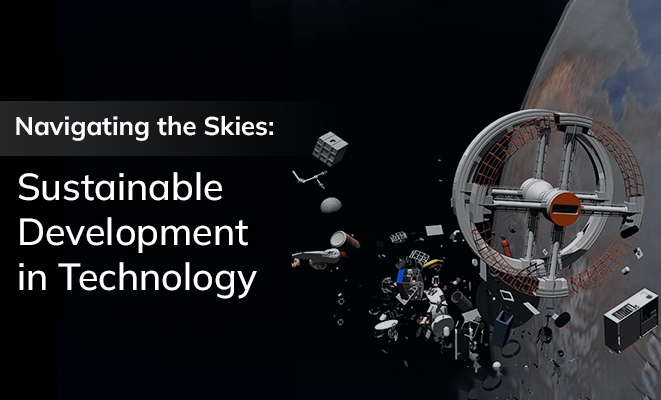Navigating the Skies: Sustainable Development in Technology
Towards sustainable development in technology, the US government recently took a pioneering step to avoid space junk. The Federal Communications Commission (FCC) issued its first-ever fine to a company, Dish Network, for failing to manage space debris around the Earth’s orbit. This action sheds light on the critical issue of space junk and the need for responsible satellite operations.
Space Junk: A Growing Concern
Space junk consists of defunct spacecraft components and old satellites, no longer in use but still orbiting the Earth. It’s a pressing issue as our presence in space is continuously expanding with more than 10,000 satellites launched since 1957, which have left around 25,000 space debris components 10 cm long each. Half of these satellites are now obsolete and collisions between the defunct components and satellites can lead to unfavourable consequences in the space environment making spacewalks of our astronauts a challenge.
The Dish Network Case: A Turning Point
The FCC’s decision to fine Dish Network $150,000 is relatively small to their revenue but has spread the message for space debris management. Dish Network agreed to a compliance plan with the FCC for failing to move its EchoStar-7 satellite away from other operational satellites. As satellite operations are on the rise, this enforcement by FCC authorities underlines the gravity of the space junk situation. The space economy is increasing, it’s time to commit to avoiding the debris to continue to perform important operations.
Looking Ahead: Sustainable Technology
As we forge into the age of technology and exploration, sustainable development is no longer a choice but an imperative. It requires collaborative efforts among government regulatory bodies to enable responsible satellite disposal methods. To keep environmental consciousness at the forefront, internal cooperation is pivotal. Following this, stringent regulatory frameworks should be in place to invest in technology for space debris mitigation and promote responsible practices. The Dish Network case is a wake-up call to build a sustainable future in space.
Conclusion
The first fine for space debris negligence is a pivotal moment to share dialogue surrounding sustainable technological developments. It underscores the need for proactive measures to embrace sustainability and environmental responsibility to secure a future that benefits both the industry and the world at large.
Author



